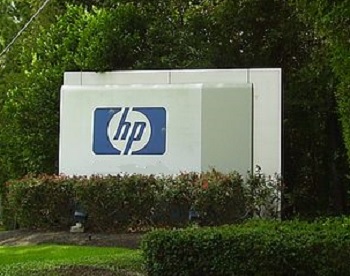HP is looking to bring more security to the mobile commerce space by updating its software offerings
Hewlett-Packard (HP) is looking to break into the mobile payments space. The company has announced the expansion of its cloud-based payment platform and chip-based payment cards. HP is making a security upgrade for its Atalla software, which is designed to help merchants protect consumer financial information. The HP Network Security Processor has also been upgraded to supper Apple Pay and new Visa payment services, such as PayWave.
Demand for secure mobile transactions is up among merchants and consumers
The mobile commerce space is quite crowded with a wide variety of mobile services. Many of these services have been having security problems, which has made mobile commerce somewhat risky for merchants and consumers alike. The demand for more security has been on the rise for some time and HP may be ideally positioned to help accommodate this demand. The company will be focusing more heavily on NFC-based transactions, as these transactions are becoming more attractive targets for malicious groups that want to exploit financial information.
HP expands partnership with Cryptomathic to make mobile payments more secure
 HP notes that its software is able to facilitate secure cloud-based payments without the need for devices to have built-in security elements. This means that mobile transactions can be protected regardless of a mobile device’s security features. HP is expanding its partnership with Cryptomathic in order to make payments more secure than they have been in the past. This partnership will also bolster the security of NFC-based payment cards, with new card technology being introduced in 2015.
HP notes that its software is able to facilitate secure cloud-based payments without the need for devices to have built-in security elements. This means that mobile transactions can be protected regardless of a mobile device’s security features. HP is expanding its partnership with Cryptomathic in order to make payments more secure than they have been in the past. This partnership will also bolster the security of NFC-based payment cards, with new card technology being introduced in 2015.
Security issues are constantly evolving and addressing new risks could be a difficult endeavor
The adoption of mobile commerce among consumers is accelerating at a rapid pace. As more people become involved in digital payments, the greater need for security solutions there is. HP is one company working to ensure that merchants can protect consumer financial information, but the mobile security space is constantly evolving and it may be difficult to account for all digital risks that are emerging therein.
BWild |
November 14, 2014
New legislation could allow merchants to charge a fee on all mobile transactions
New legislation in Canada could cause some turbulence in the mobile commerce space. Some of the country’s lawmakers have introduced legislation that would allow Canada’s merchants to institute a surcharge on customers paying for products from a mobile device. Having to pay additional fees may make mobile commerce somewhat less popular among consumers, but merchants have been having to deal with these fees for some time.
Payment services are proving to be a costly investment for merchants
Organizations that offer mobile payment services, such as Visa and MasterCard, also charge a fee for the merchants that use these services. Generally, merchants pay approximately 2.5% per transaction made through a payment platform. Many merchants have avoided embracing mobile payments because of these fees, while others have seen little issue with the practice. In the case of Visa and MasterCard, the two companies have begun lowering the fees on transactions in order to make mobile payment services more popular among smaller merchants.
Surcharges on mobile transactions could help merchants become more financially stable
 Per the new legislation, merchants may be able to offset the financial impact of high interchange fees by imposing fees of their own. Many merchants see mobile commerce as a costly investment and becoming involved in this space has proven to be quite expensive. By imposing fees on mobile transactions, retailers may be able to see some financial gain from their mobile initiatives. Additional fees may not be popular among consumers, however, who may look for merchants that do not charge for mobile transactions rather than support those that do.
Per the new legislation, merchants may be able to offset the financial impact of high interchange fees by imposing fees of their own. Many merchants see mobile commerce as a costly investment and becoming involved in this space has proven to be quite expensive. By imposing fees on mobile transactions, retailers may be able to see some financial gain from their mobile initiatives. Additional fees may not be popular among consumers, however, who may look for merchants that do not charge for mobile transactions rather than support those that do.
Merchants may be unlikely to charge for mobile transactions until they can no longer handle other costs
While many merchants have expressed concerns over the financial aspects of mobile commerce, relatively few of them are likely to begin charging for mobile transactions. When a high profile platform, such as Apple Pay, arrives in Canada, however, merchants may change their minds regarding the matter. Such a platform introduces more complexity to the commerce space and has the potential to raise costs for merchants, which will need to be offset for the sake of financial survivability.
 HP notes that its software is able to facilitate secure cloud-based payments without the need for devices to have built-in security elements. This means that mobile transactions can be protected regardless of a mobile device’s security features. HP is expanding its partnership with Cryptomathic in order to make payments more secure than they have been in the past. This partnership will also bolster the security of NFC-based payment cards, with new card technology being introduced in 2015.
HP notes that its software is able to facilitate secure cloud-based payments without the need for devices to have built-in security elements. This means that mobile transactions can be protected regardless of a mobile device’s security features. HP is expanding its partnership with Cryptomathic in order to make payments more secure than they have been in the past. This partnership will also bolster the security of NFC-based payment cards, with new card technology being introduced in 2015.
 Per the new legislation, merchants may be able to offset the financial impact of high interchange fees by imposing fees of their own. Many merchants see mobile commerce as a costly investment and becoming involved in this space has proven to be quite expensive. By imposing fees on mobile transactions, retailers may be able to see some financial gain from their mobile initiatives. Additional fees may not be popular among consumers, however, who may look for merchants that do not charge for mobile transactions rather than support those that do.
Per the new legislation, merchants may be able to offset the financial impact of high interchange fees by imposing fees of their own. Many merchants see mobile commerce as a costly investment and becoming involved in this space has proven to be quite expensive. By imposing fees on mobile transactions, retailers may be able to see some financial gain from their mobile initiatives. Additional fees may not be popular among consumers, however, who may look for merchants that do not charge for mobile transactions rather than support those that do.